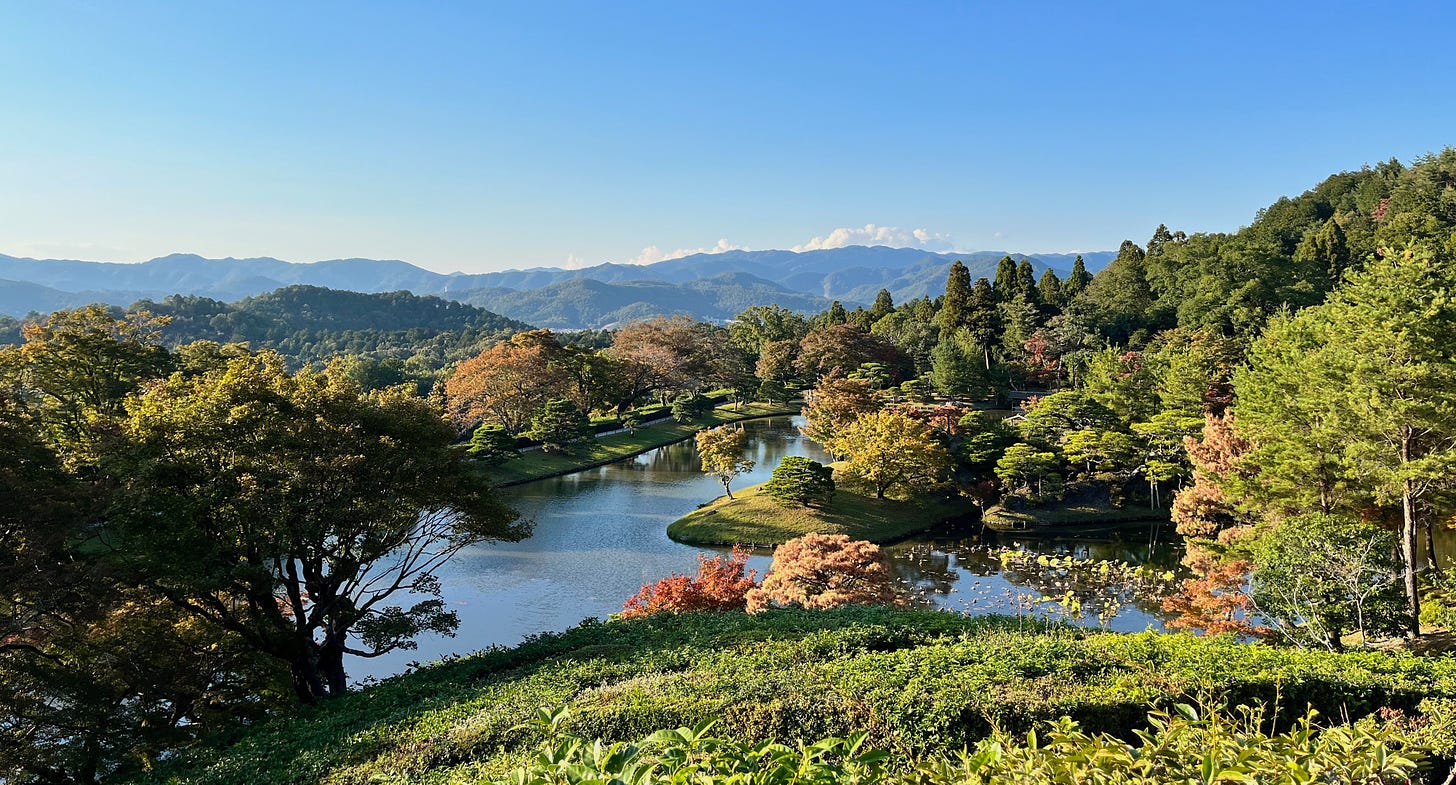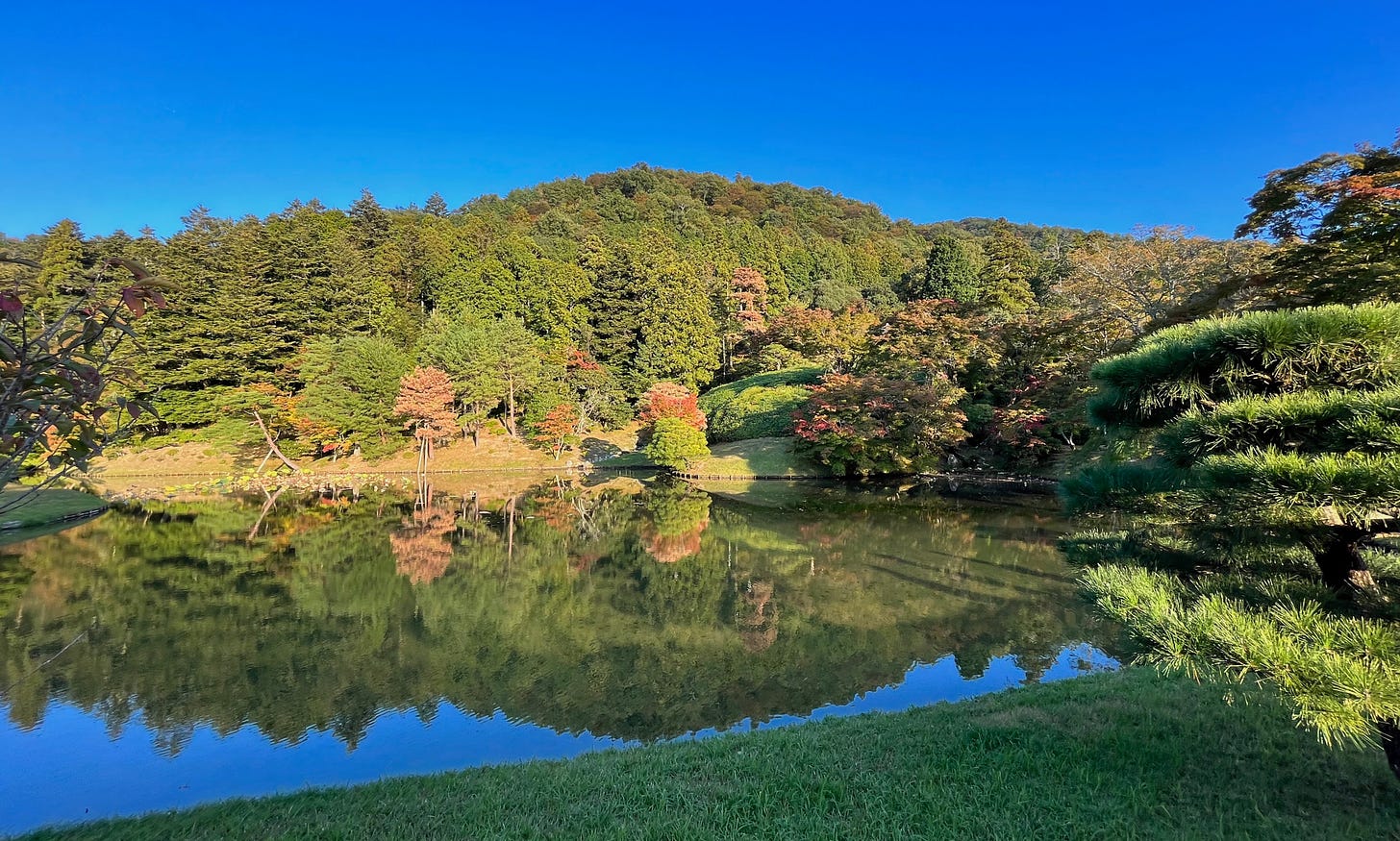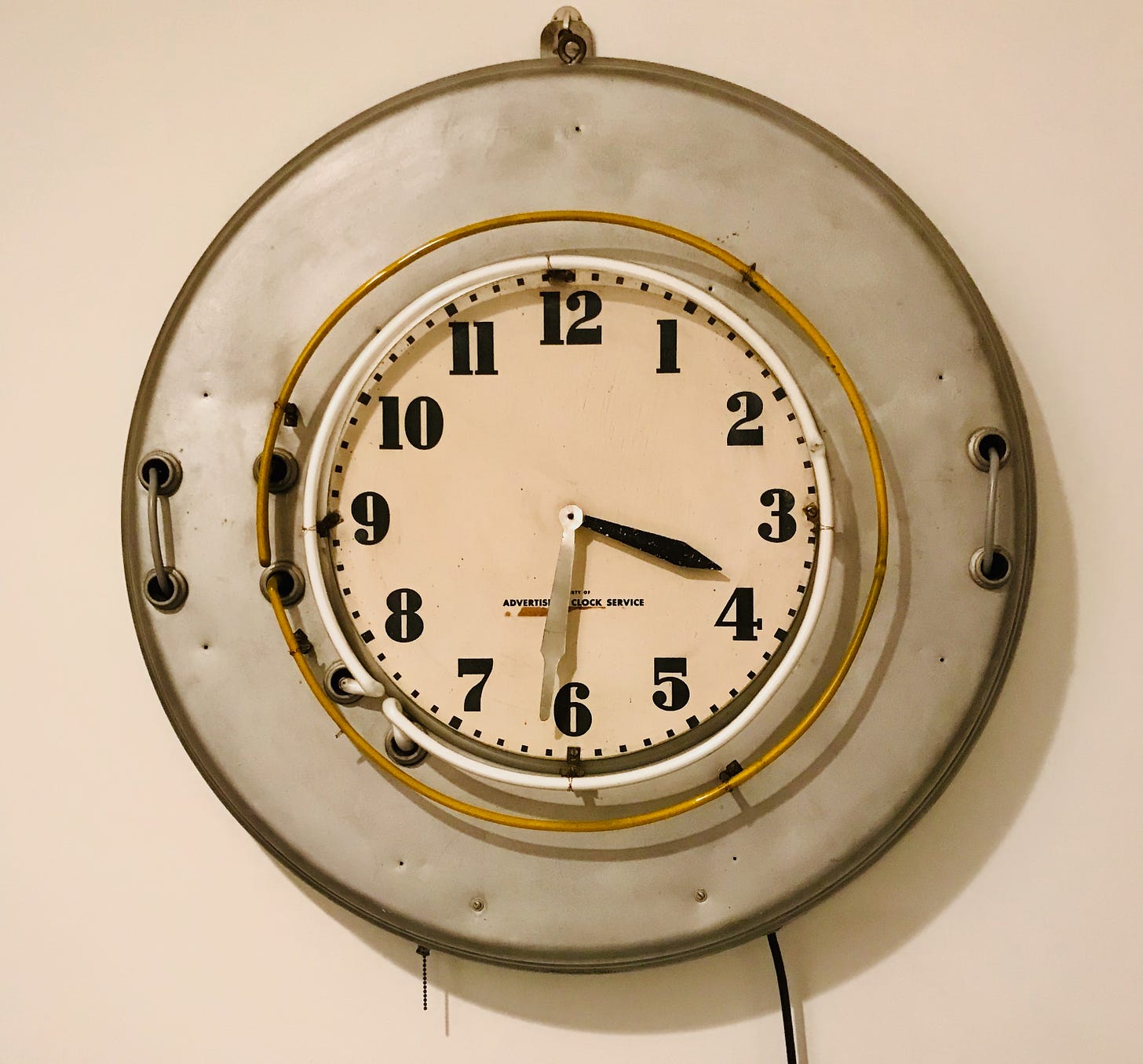# 4 The Shugakuin Imperial Villa and its Splendid Gardens in Kyoto, Japan
On misty shelves, borrowed beauty, and (self)reflections
Two weeks ago, autumn arrived in Kyoto. The cute mouse I watched scavenging in our mini rock garden has taken up residence in our home—so predictable—and now it looks more like a baby rat. For the first time in eight months, I’m wearing socks.
All of this is good news, though: Cooler temperatures make it possible to climb on my bicycle earlier in the day, drive farther, and explore more.
Daniel and I were finally able to visit the Shugakuin Imperial Villa.
We first had to win the lottery, though. Meaning: I visited the Imperial Household Agency online, chose a villa, clicked my way through the sign-up page, browsed to find an available slot, threw our names into the proverbial hat, and received an email with the news that our names had been drawn and we were invited to join the sought-after free guided tour to the Shugakuin Imperial Villa.
Solemn Guards and Fashionable Female Monks
We arrived early, having learned that this is the way to do things right in Japan. Two solemn guards welcomed us. Without pointing yet with graceful hand gestures, they showed us where to park our bicycles. They also dried off a recently rained-upon bench, as though we were royalty, and told us everything that would happen next: passport check, toilet opportunity, instructional video, availability of non-alcoholic drinks. The Japanese prefer visitors to be prepared and will often answer questions long before you have the chance to conceive them. We were not to consume food during the tour, yet drinking water was allowed.
Our group of about twenty self-possessed people was led by a rather surly young man who spoke only Japanese. But Daniel and I had our British-sounding audio guide who told us what to pay attention to, and we had two fashionable female monks to lead the way.
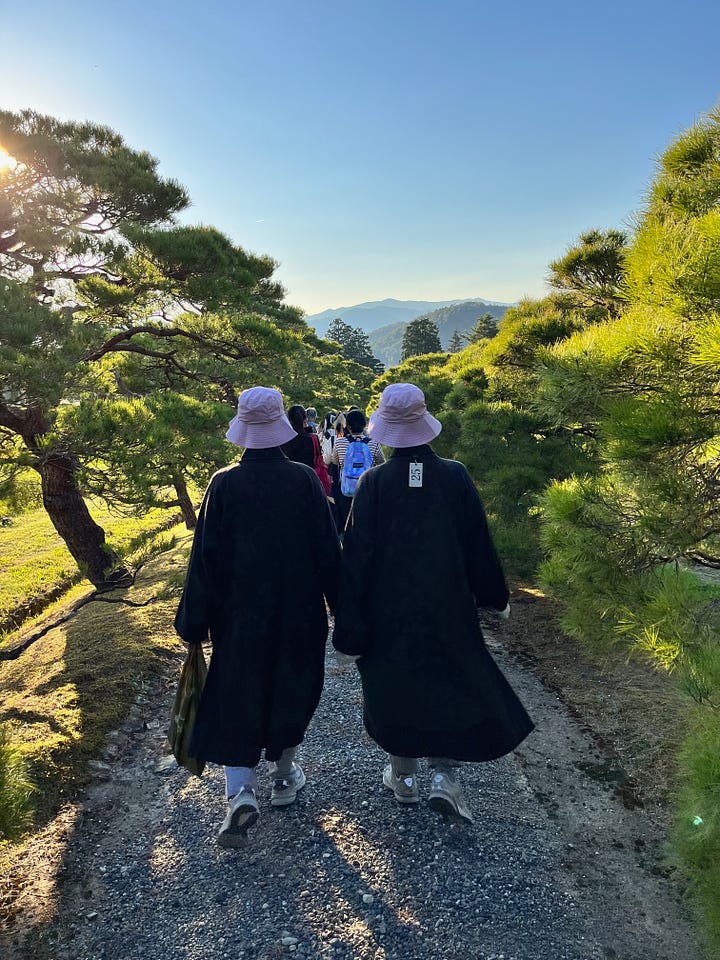
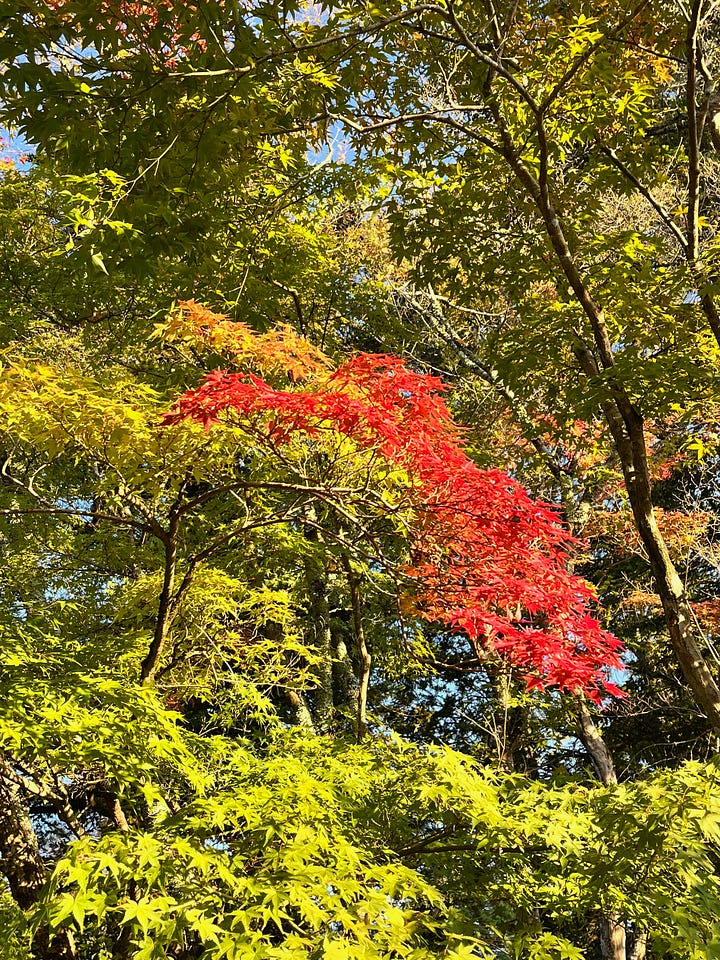
The guide opened the wooden gate with ceremonious elegance and admitted us to the imperial grounds. The villa itself (dating from 1655) was off-limits, but we walked around the Middle Villa (once a Buddhist nunnery) and admired its spareness, the exquisitely painted sliding doors, and the light slanting in with a dazzling intensity like something ordained by a god.
The Kasumidana, literally the mist shelf, is one of the most treasured shelvings in Japan and resembles a timeless layered haze. In its elegant simplicity I saw the essence of the shelf, the firmness of wood lifting and holding our impermanent possessions.
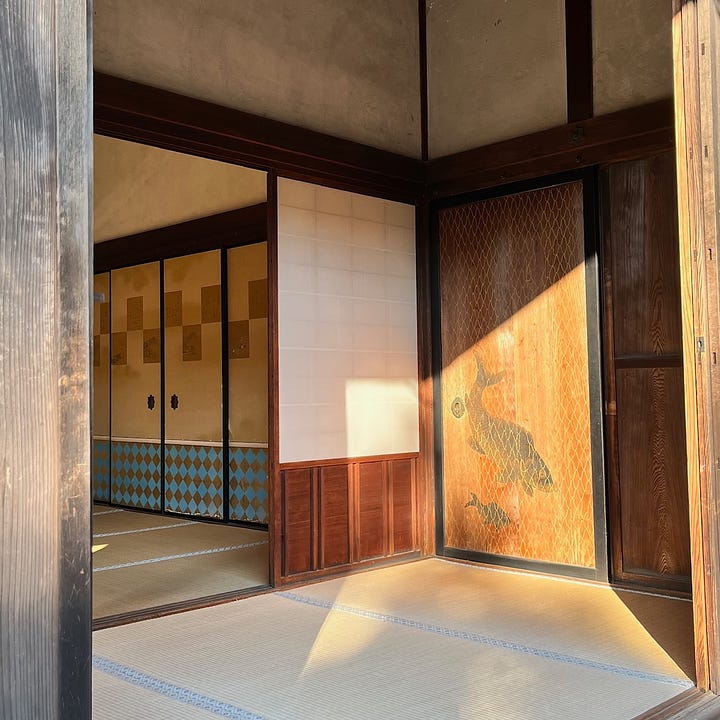
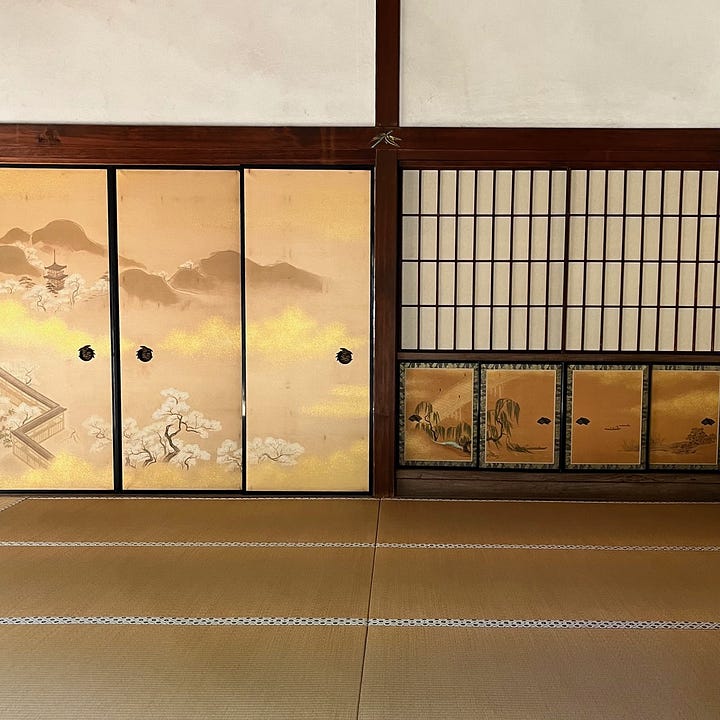
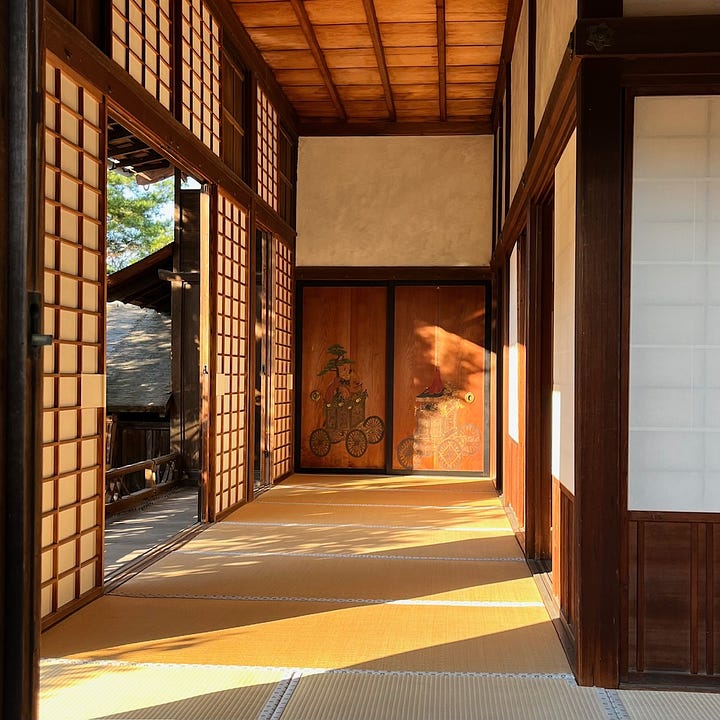
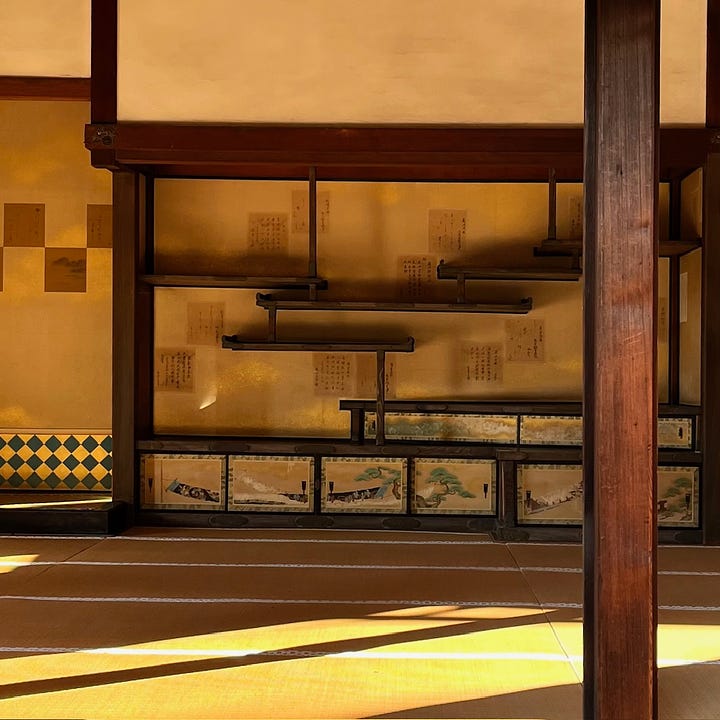
In the quiet of the afternoon, we walked uphill between pruned-to-perfection pines and rice paddies, some bight green and others already yellow-ripe for harvest. The maples, though barely red, were trying hard to change color, aware of autumn’s will and our cultured expectations. They wanted to look the way they were supposed to and therefore did, such hope in their branches.
As we climbed the many steps toward the Upper Villa, and I lagged behind to take in the scene in solitude, feeling the pull of the woods, I heard the insistent ringing of a little bell, as though a Swiss cow or Turkish goat were behind me. It turned out to be a uniformed guard, closing our ranks and urging me along: I was not to leave the herd.
The Upper Villa wasn’t really a villa but rather a covered terrace—a pavilion near the clouds—meant for viewing the landscape. And what a view it was, down over the pond and toward the Higashiyama mountains whose borrowed beauty enriched the garden’s scope. I breathed in the present and witnessed others do the same. Nobody spoke as the sound of a nearby waterfall brought everything to life.
On the Pond of the Bathing Dragon, named for the shape of the pond, was a tiny island connected by three bridges, and on this island stood a tea house where I would have liked to meditate for an hour or a year. But we were on a schedule, the guard with the bell reminded me, and not beyond the reach of time.
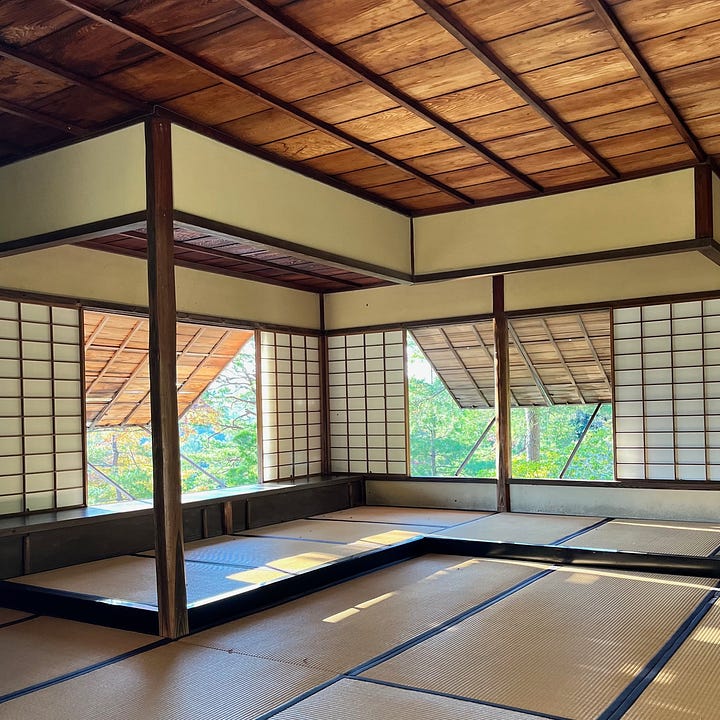
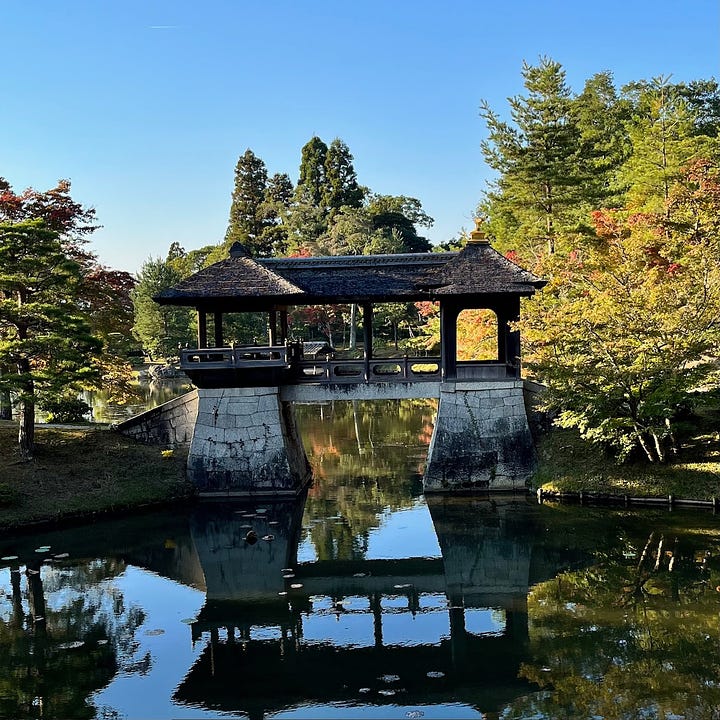
We finished the tour after an hour with a walk along the pond where the low sun and the water made magic together. If you were to be a duck, I thought, better be a duck in the Pond of the Bathing Dragon than a duck on a plate in the South of France. I dared to stand still and gaze into the water.
To reflect and be reflected is the (not so) secret beauty of Japan.
Author News
I’m proud to present my first story co-written with the fabulous Lynn Mundell! We admired each other’s writing, critiqued each other’s work, became friends, and have now stretched our relationship into being collaborators.
Our story is inspired by the haunted clock in the house of my dear friends in Silver Lake (Los Angeles), where Lynn and I stayed in the summer of 2022.
“It’s not that the clock lags by an hour or so. That would be forgivable for such an old lady. It’s that every time she looks at it, the time is different. Five hours ahead or 12 minutes behind. When she boiled the water, it was 4:05. When she looks at the clock face again, with the coffee still draining, it is 12:43.”
How do you co-write a story you may ask? In our case, it went as follows: I wrote a few lines, then Lynn wrote a few lines, and we traded the story back and forth like this several times until a story emerged. Then we discussed what the story was about and where we should take it—objective time versus Bergson’s duration, mental illness, the uncertainty of romantic bonds—and we cut all the unnecessary stuff away. Next we traded the draft back and forth again to get the ending right and finished by giving the story our best line-edit.
The first place I submitted it to, Midway Journal, offered us publication overnight. I tend to believe the clock’s skewed time had something to do with the speediness of the editor’s acceptance.
Read the full story (it’s only a 1,000 words) here.
And, yes, pictured below is THE clock.
Time to Say Goodbye
Despite our slow traveling habit, Daniel and I are off for a two-week adventure that is scheduled more like a traditional holiday, staying in guesthouses or hotels for a night or two. If all goes well, you’ll hear from me again on the other side of the Japanese Alps!
But first wish me luck in finding a new hotel for next Saturday: The lodge we had booked in Omachi just cancelled our reservation due to an emergency. Oh well, traveling is improvising.
All my best,
Claire
P.S. Although I’m still there, I already miss Kyoto. May the season’s taste of sweet persimmons last a little longer on my tongue.
In Kyoto,
hearing the cuckoo,
I long for Kyoto.
—Matsuo Bashō





